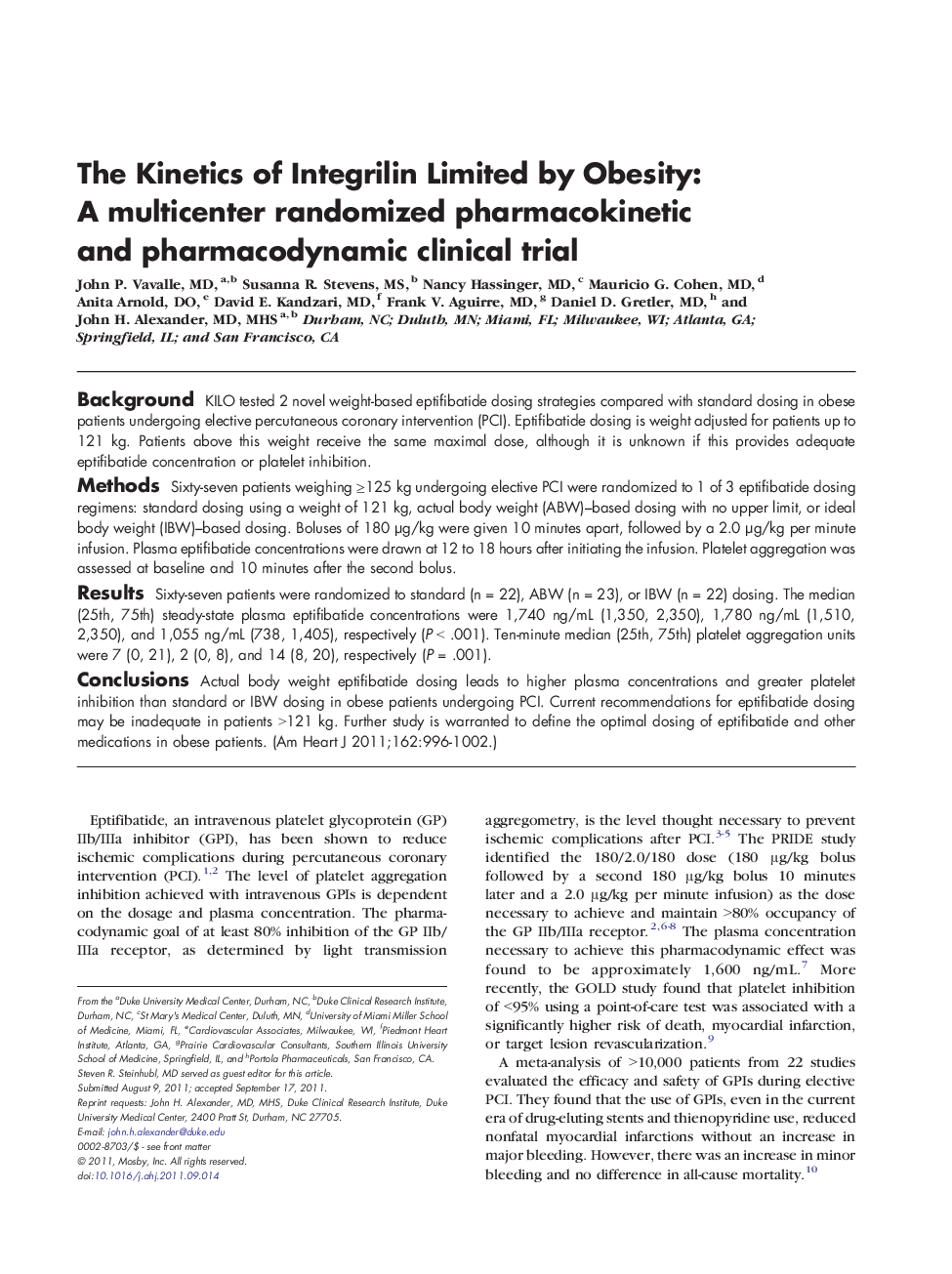| Article ID | Journal | Published Year | Pages | File Type |
|---|---|---|---|---|
| 5927092 | American Heart Journal | 2011 | 7 Pages |
BackgroundKILO tested 2 novel weight-based eptifibatide dosing strategies compared with standard dosing in obese patients undergoing elective percutaneous coronary intervention (PCI). Eptifibatide dosing is weight adjusted for patients up to 121 kg. Patients above this weight receive the same maximal dose, although it is unknown if this provides adequate eptifibatide concentration or platelet inhibition.MethodsSixty-seven patients weighing â¥125 kg undergoing elective PCI were randomized to 1 of 3 eptifibatide dosing regimens: standard dosing using a weight of 121 kg, actual body weight (ABW)-based dosing with no upper limit, or ideal body weight (IBW)-based dosing. Boluses of 180 μg/kg were given 10 minutes apart, followed by a 2.0 μg/kg per minute infusion. Plasma eptifibatide concentrations were drawn at 12 to 18 hours after initiating the infusion. Platelet aggregation was assessed at baseline and 10 minutes after the second bolus.ResultsSixty-seven patients were randomized to standard (n = 22), ABW (n = 23), or IBW (n = 22) dosing. The median (25th, 75th) steady-state plasma eptifibatide concentrations were 1,740 ng/mL (1,350, 2,350), 1,780 ng/mL (1,510, 2,350), and 1,055 ng/mL (738, 1,405), respectively (P < .001). Ten-minute median (25th, 75th) platelet aggregation units were 7 (0, 21), 2 (0, 8), and 14 (8, 20), respectively (P = .001).ConclusionsActual body weight eptifibatide dosing leads to higher plasma concentrations and greater platelet inhibition than standard or IBW dosing in obese patients undergoing PCI. Current recommendations for eptifibatide dosing may be inadequate in patients >121 kg. Further study is warranted to define the optimal dosing of eptifibatide and other medications in obese patients.
